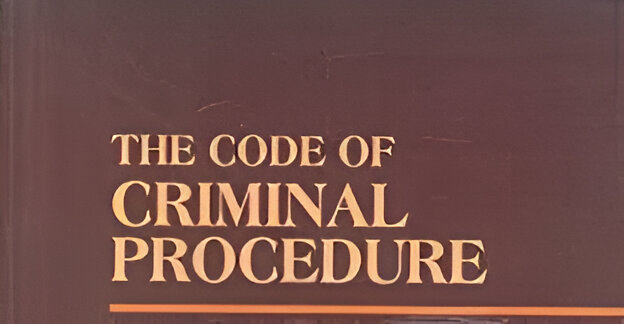The Supreme Court on Friday (August 23) pondered whether a prior sanction under the Prevention of Corruption Act 1988 (PCA) would be required for a Magistrate to direct an investigation into cognisable offences by a public servant relating to PCA under S.156(3) of CrPC.
The bench of Justices JB Pardiwala and Manoj Misra was hearing the challenge by the former Chief Minister B.S. Yediyurappa against the order of the Karnataka High Court dated 07.09.2022 which restored proceedings against him under charges of bribery under the Prevention of Corruption Act.
The Counsel appearing for the original complainant has submitted that the present matter deals essentially with the legal question of – whether a direction under S. 156(3) of the CrPC requires prior sanction for prosecution under S. 17A PCA
S. 156(3) states – that Any Magistrate empowered under section 190 may order such an investigation of any cognizable offence.
Senior Advocate Sidarth Luthra appearing for Yediyurappa along with Senior Advocate Siddarth Dave argued that S.17A PCA implies that passing a direction under S.156(3) would amount to taking cognizance of the offence. In that scenario, S.19 of PCA will come into picture.
S.17A provides that no inquiry or enquiry or investigation can be done by police officials into an offence committed by a public servant under the PCA without sanction by the appropriate authority.
In the alternative, it was argued that if the direction under S.156(3) is not considered to be at the stage of taking cognizance, it would anyhow be hit by the principle laid down in in Anil Kumar v. Ayyappa wherein it was held that prior sanction was necessary for the Special Judge to even forward the complaint under Section 156(3) CrPC.
Notably, the principle laid down in Ayyappa was doubted by a two Judge Bench of Justices Chelameswar and SK Kaul in the case of Manju Surana v. Sunil Arora and referred to a larger bench. The reference is now pending before a larger bench.
Luthra further added that overlooking the above proposition would lead to the misuse of S.156(3).
“Whoever wants to avoid the rigors of S. 17A will then go and seek S.156(3) order”
Justice Pardiwala then asked whether it was the case of the petitioner that even after a direction under Section 156(3) by a special Court, a sanction under S. 17A would be required and on what factors will the approving authority consider the grant of sanction.
He analysed that when a direction to investigate is given to an officer in charge by the Special Court under S. 156(3), then if he is asked to take subsequent approval under S.17A of PCA, the approving authority will have no choice but to grant the sanction.
Luthra rebutted the said proposition stating that in such an event the whole purpose of S.17A would be defeated.
The Counsel for the state also informed the court that proceedings have only been stayed against the Petitioner and not the other 7 co-accused involved.
The issue whether Section 17A applies retrospectively to offences which took place prior to the 2018 amendment( which inserted the section) is pending before a larger bench following a split in the Chandrababu Naidu case.
The matter will be heard on October 18.
What happened in Manju Surana case?
A two-judge bench comprising Justices J Chelameswar and SK Kaul doubted the 2013 judgment of a coordinate bench in Anil Kumar v. M K Aiyappa which held that prior sanction of the Government is necessary for a Magistrate to pass an order for investigation on a complaint against a public servant.
While agreeing that a Magistrate/Special Judge( under the Prevention of Corruption Act) was not taking cognizance of a complaint while passing an order under Section 156(3) CrPC, the Court held in Anil Kumar that sanction was necessary for exercise of power under Section 156(3) CrPC.
Observing that an authoritative pronouncement was required on the issue, the matter was referred to a larger bench. The question for reference was framed as :
“Whether prior sanction for prosecution qua allegation of corruption in respect of a public servants is required before setting in motion even the investigative process under Section 156(3) of the Code of Criminal Procedure, 1973”
It may be recalled that in April the bench comprising Justices CT Ravikumar and Rajesh Bindal, after noting that the issue was of wide relevance and was arising in several matters frequently, observed that “an earlier decision on the question referred is solicited.”
Background
The complaint alleged that crores of rupees have been exchanged in Bengaluru allegedly in the name of the stalled project of BDA and work order was issued in favour of M/s.Ramalingam Construction Company Pvt. Ltd., a company owned by accused No.5 Chandrakanth Ramalingum and Rs.12.5 Crores was demanded by Yediyurappa’s son, on his father’s behalf.
Further, It was alleged that accused No.7 Dr.G.C Prakash received Rs.12.5 Crores from accused No.8 K.Ravi on the assurance that the amount will be handed over to Yediyurappa, through his son Vijayendra.
The third allegation against the former CM was that he and other co-accused indulged in corruption by using shell companies and Rs.3,41,00,000/- amount was transferred to the shell companies and in turn the said amount was transferred to the bank account of the companies owned by Yediyurappa’s family members.
Special Judge, referring to the judgment of Apex Court in Anil Kumar and Others v. M.K. Aiyappa and Another (2013) 10 SCC 705, recorded a finding that an order of reference for investigation under Section 156(3) of Cr.P.C. cannot be made without valid sanction under Section 19(1) of the P.C. Act.
A single judge of the High Court had partly allowed the petition filed by complainant Abraham T.J. and set aside the order dated July 8, 2021 passed by the Special Court set up for trying cases against Legislators.
Case Title: BS Yediyurappa v Abraham TJ And Ors. SLP(Crl) No. 8675/2022
#airr #news #airrnews #channel #Legal #case #India #court #highcourt #supremecourt




